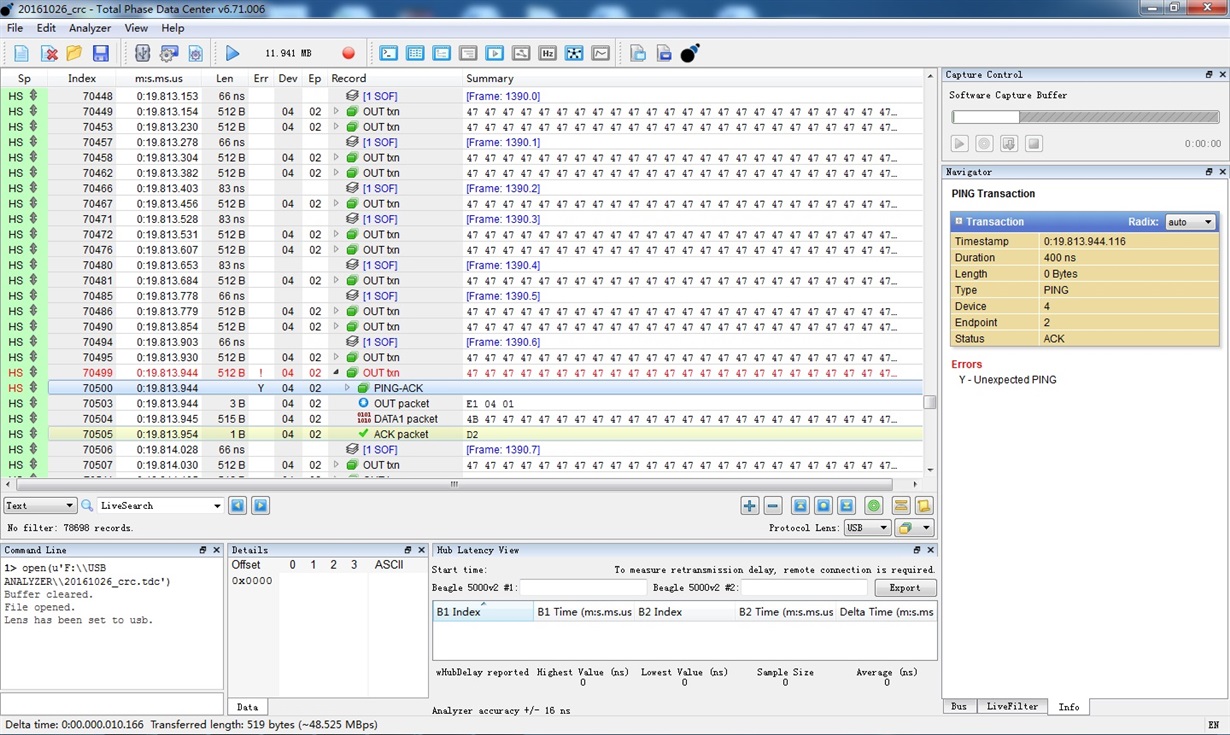I meet unexpected PING-ACK issue when usb host transmit special data packet via usb analyzer.The issue may only occur when the follow conditions are established:
1.A hub is connected to usb host
2.The data packet is transmitted from host to device,and filled with fixed data(0x47).The issue maybe reproduced with other fixed data.
I use the wince OS.However,I meet the same issue on EVM board with linux os.
The issue will not occur if we remove hub.The issue can't be reproduced with the same hub on other CPU IC(IMX28(USB2.0),and S3C2416(USB1.1)).It's strange.


